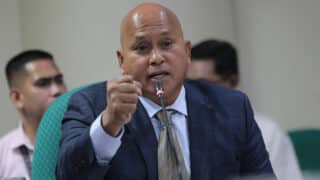So far, after the victory of Ferdinand Marcos Jr., there has been a flurry of news accounts on the personalities who will head the different departments of the current administration. In addition, news accounts often mention departments that in their writers’ opinion, have pressing concerns such as that food, education, economic management, jobs, social work, overseas employment, transportation, national defense, national security, energy, and others. But, until now, I have not read or heard news expressing interest in the Department of Human Settlements and Urban Development (DHSUD) or who is being considered as its new secretary.
If we recall, the Ministry of Human Settlements (MHS) during the administration of President Marcos Jr.’s father was a very important department, with no less than Mr. Marcos’ mother, Imelda R. Marcos, heading the ministry. Under her term, the ministry could complete big-ticket projects, which could be attributed to the fact that she was able to cut bureaucratic corners, although, to her credit, she was an active first lady who assisted in running state affairs. Could the new inattention to DHSUD be due to its lack of notable accomplishments or prominent leader? Or could it be due to the perception that its functions are not concerned with pressing problems or needs of the times?
However, there is also a need to focus on the DHSUD as it is concerned with shelter, one of man’s traditional immediate basic needs, namely, food (and water), shelter, and clothing. In fact, during Imelda Marcos’ term, her ministry even addressed 11 basic needs, including these three needs. The other eight basic needs promoted by the MHS were water, power, health, education and culture, sports and recreation, ecological balance, mobility, and livelihood. Indeed, housing is a major problem in Philippine society, considering that it is a problem of Class D (low- and average-income earners) sector, which makes up 60 percent of our population. And to think that this is the sector that comprised the bulk of the over 31 million votes garnered by Mr. Marcos during the last elections and which should have been his immediate concern after his victory.
It should be stressed that since we need to recover economically after the pandemic, the housing industry should be given its due attention considering its high economic multipliers, meaning that income earned in other sectors of the economy as a result of home construction and sale is then recirculated into the economy. A study by the US Bureau of Economic Analysis in 2019, for example, states that the housing construction multiplier is one of the highest of any major industrial sector, i.e. ranking fifth in magnitude among 64 industrial categories.
This early, the government should strengthen the functioning of DHSUD’s component agencies by updating existing laws and policies on housing. Most department agencies are involved in housing and real estate development and regulation. Four are mainly engaged in home financing. And yet, the department has been operating since 2010 on a meager budget of less than 1 percent of the general appropriations. In 2021, the senators proposed a budget of P75.575 billion for DHSUD, but the Department of Budget and Management did not endorse this. Thus, for 2022 the department has an approved budget of only P6.39 billion, which is a pittance for a department that manages the pump-priming housing sector with ties to 80 industries.
The current interactive economic team of Mr. Marcos would do well to find a way of augmenting DHSUD’s budget to realize the housing sector’s great economic potential. And, lest we forget, the new head of DHSUD should be one with a good grasp of the potential of the housing sector and, of course, its contextual environmental, land use and urban planning, and development dimensions, which are also part of DHSUD’s concerns.
Meliton B. Juanico,melitonbjuanico@gmail.com


